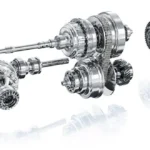
Can A Bad Alternator Ruin A Car Battery?
Introduction
Car maintenance can sometimes be a complex and confusing topic for many vehicle owners. One common issue that car owners may encounter is a dead or weak battery. While a bad battery is often the first suspect, it is essential to consider other factors that could potentially impact the battery’s performance. One such factor is a faulty alternator.
Understanding the Alternator
The alternator plays a crucial role in a car’s electrical system. It is responsible for generating electrical power and charging the battery while the engine is running. The alternator converts mechanical energy from the engine into electrical energy, which is then used to power various components of the vehicle and recharge the battery.
The Relationship Between the Alternator and Battery
The alternator and the battery work hand in hand to ensure the smooth functioning of a vehicle’s electrical system. When the engine is running, the alternator supplies electrical power to the car’s electrical components and simultaneously charges the battery. This process ensures that the battery remains fully charged, ready to provide the necessary power to start the engine and operate other electrical systems when the vehicle is not running.
How a Bad Alternator Can Affect the Battery
If the alternator is faulty or not functioning correctly, it can have a significant impact on the car battery. A bad alternator may not be able to generate enough electrical power to charge the battery adequately. As a result, the battery may not receive the necessary charge it needs to function optimally.
In such cases, the battery may gradually lose its charge, leading to a weakened or dead battery. This can manifest as difficulty starting the engine, dim headlights, or other electrical malfunctions. If the alternator is not repaired or replaced promptly, the battery may eventually become completely drained and unable to start the vehicle.
Diagnosing a Bad Alternator
There are several signs that indicate a potential problem with the alternator:
- Dim or flickering headlights
- Dashboard warning lights, such as the battery or charging system warning light, illuminating
- Strange noises coming from the alternator
- Electrical components not functioning properly
- A sudden loss of power while driving
If you experience any of these symptoms, it is crucial to have your vehicle inspected by a qualified mechanic who can accurately diagnose the issue.
Preventing Alternator-Related Battery Issues
Regular maintenance and inspections can help prevent alternator-related battery problems. It is recommended to follow the manufacturer’s recommended maintenance schedule and have the alternator checked during routine service appointments. Additionally, keeping the battery terminals clean and free from corrosion can also contribute to the overall health of the electrical system.
Conclusion
A bad alternator can indeed have a detrimental effect on a car battery. The alternator’s primary function is to generate electrical power and charge the battery while the engine is running. If the alternator is faulty, it may not be able to provide the necessary charge to the battery, leading to a weakened or dead battery over time. Regular maintenance and prompt repairs can help prevent alternator-related battery issues, ensuring the smooth operation of a vehicle’s electrical system.




